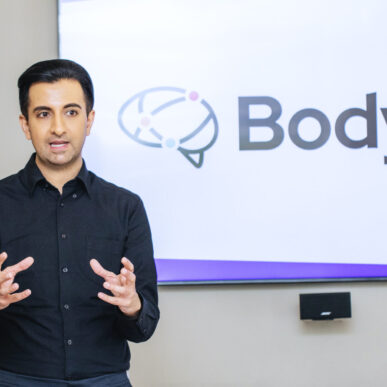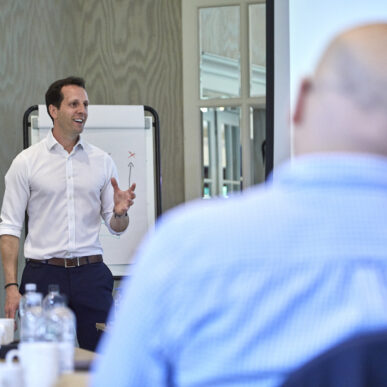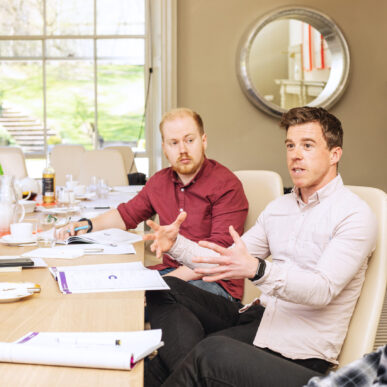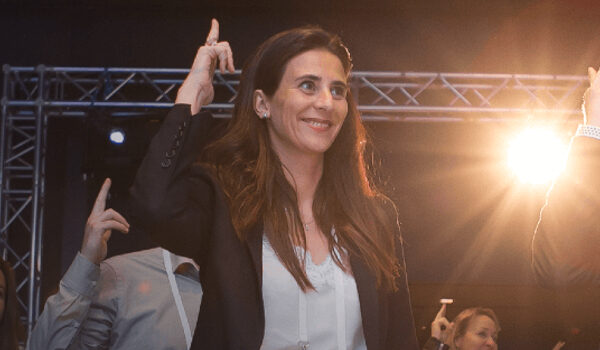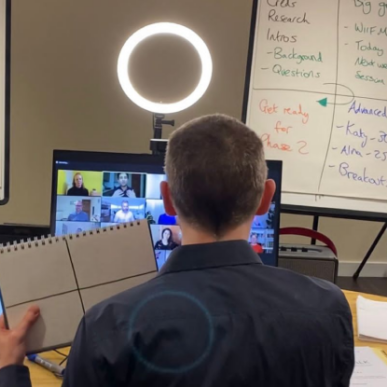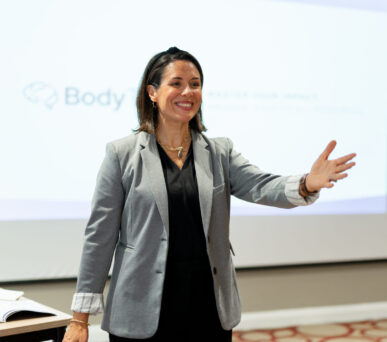Today, I found myself on a group chat about asteroids – specifically, how best to refer to someone who studies asteroids and meteors in an example news story.
We debated referring to them by their technical name – meteoriticist – but perhaps astronomers would do? Planetary geologists also study asteroids, so that might be a better option. What about astrophysicists? Which is most correct?
In the end, we settled on a much simpler word: scientists.
It may not be as specific, but for the audience who’d be reading the story, it was perfect.
“Trying hard to sound smart does not necessarily make you sound smart and may actually be harming the impact of your message.”
The power of keeping things simple
The asteroid chat is a perfect example of what happens in so many presentations and reports. We often tie ourselves in knots trying to find the exact technical phrase or complex explanation for our subject.
But when language becomes too technical or filled with jargon, it can rapidly lose its impact for the audience, especially if they feel they don’t understand or can’t keep up.
If you want your audience to understand the information that you’re sharing and to remain engaged by it, then you need to keep your language simple.
Why do we use complicated language?
There are several reasons why people use complicated language during meetings and presentations.
When you’re preparing a presentation, you may feel that by using the most complex terms possible, you will come across as more credible and knowledgeable within your field. You might feel that your audience expects you to use complex language. You may think that using technical words makes you sound more important.
Often, the overuse of complex language stems from our own insecurities and imposter syndrome – the fear of being ‘found out’ or the audience doubting your ability. Who hasn’t trawled through a thesaurus to try and choose alternative words to make themselves sound cleverer?
However, the bottom line is: trying hard to sound smart does not necessarily make you sound smart and may actually be harming the impact of your message.
When language is too technical or complex, or new ideas are shared too quickly without explanation, audiences can switch off. At best, your audience might miss key points of your presentation and at worst, they might leave the room with a lack of confidence in their own ability to understand.
So here are five tips that will help you to simplify your language so that your message really lands, however complicated the content.
What does your audience already know?
Before you prepare any presentation, don’t start by thinking, ‘what am I going to say?’ but, instead, try and create a profile of your audience in your mind.
Who are you going to be presenting to? What is their existing level of knowledge on the subject? What are you aiming to achieve by presenting this information to them? Why are they going to be there, listening to you?
By thinking carefully about your audience, you can start to make decisions about the most suitable ways in which you will describe and explain the information that you’re sharing.
Don’t assume people know what you’re talking about
This is a classic mistake which can really harm the effectiveness of your message.
If you assume that your audience knows what you’re talking about, you risk people switching off very quickly if they don’t. Things such as project names, acronyms, jargon specific to your industry, business slang or abbreviations may be familiar to you but don’t assume that everyone has had that information available to them beforehand – or paid attention to it.
Make sure your presentation is accessible to the person with the LEAST knowledge in the room, and start from there. Check-in with your audience at the start and be prepared to explain any project names or concepts.
People are often afraid to speak up if they don’t understand something, so making it as easy as possible for your audience to follow will help to increase engagement and trust.
Signposting and checking in
If you need to delve into a lot of technical detail or explain complicated ideas, then make sure you are continually signposting to your audience as you go along.
Signposting is guiding a listener through a presentation by summarising what you’ve just said, what you’re about to say and recapping any key points as you go through, which can help people to focus.
Make sure that you check in with your audience at key points during your presentation to ensure that they are following what you’re saying. Giving people the opportunity to ask questions throughout rather than wait until the end can make people feel more comfortable, especially if the topic is particularly complex.
Give your presentation the ‘granny’ test
One of the biggest tips to help simplify language or concepts is to give your presentation ‘the granny test’, i.e., how would you explain this concept to your granny (assuming your grandmother is not an expert in the field)?
This is a tried-and-tested way of forcing you to simplify your ideas: you may need to be patient, slow down your explanation and build it up, bit by bit, in a way that your granny would be able to understand and follow it.
It’s a good way to get your head out of the technical language and focus on what you really need to communicate in order for your message to be understood.
It will also help you to write as you speak. In business presentations, we often show a tendency to employ a sort of ‘business lexicon’, but it’s not necessary. The most engaging presentations are those which don’t sound like a written document but more like normal speech.
It’s not dumbing down
One worry that people often have is that by simplifying language, they’ll be dumbing down the information for an audience.
Choosing simpler language does not have to mean that you are dumbing down – in fact, honing the ability to explain ideas in plain language takes real skill. You can still explain incredibly complex ideas and data in simple language, and you may be surprised at how much more quickly people understand them.
Hone your presentation and storytelling skills
Taking the time to work on your presentation and storytelling skills can really reap benefits in terms of audience engagement. Why not book one of our Science of Storytelling courses to find out how you can make your message clear, concise and compelling?
Get in touch with the Body Talk team today, and we’ll be delighted to help you.







